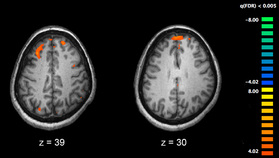|
10/26/2014 0 Comments What is Schizophrenia? By: Ammara Virk Schizophrenia is defined as a “chronic, severe, and disabling brain disorder” that results in hallucinations, anxiety and agitation, among other symptoms (NIMH). It turns out that Schizophrenia is not an entity in and of itself. While it is known that factors such as heritability and environment can influence the onset of schizophrenia, not much more is known about the complexity of this disease. Current research claims that schizophrenia may actually be a spectrum of eight separate diseases. While researchers would normally look at individual genes when determining the link between schizophrenia and heritability, scientists at Washington University tested over 4,000 people who had schizophrenia and found that there were in fact, gene clusters and that these gene clusters were responsible for the eight distinct classes of schizophrenia. To further the complexity, while there may be several separate gene mutations, they might only express themselves as one or two symptoms. “So…what’s causing hallucinations in one person might be different than what’s causing them in another,” (CNN). So what could this mean for further treatment? At the very least, one might speculate that this will allow one to be able to treat schizophrenia more precisely, given that they are aware that it is not the exact same gene in each individual that is causing the symptoms. CNN:http://www.cnn.com/2014/09/16/health/schizophrenia-eight-diseases/index.html?hpt=he_bn7 NIMH:http://www.nimh.nih.gov/health/topics/schizophrenia/index.shtml
0 Comments
Leave a Reply. |
WELCOME, UMICH SCIENTISTAS!
CAMPUS PICS
WHAT'S NEWUPCOMING EVENTSPAST POSTS
October 2022
SORT BY TAG |
The Scientista Foundation, Inc. All Rights Reserved © 2011-2021 | Based in NY | [email protected]
The Network for Pre-Professional Women in Science and Engineering
The Scientista Foundation is a registered 501(c)(3) -- Donate!
The Network for Pre-Professional Women in Science and Engineering
The Scientista Foundation is a registered 501(c)(3) -- Donate!


 RSS Feed
RSS Feed